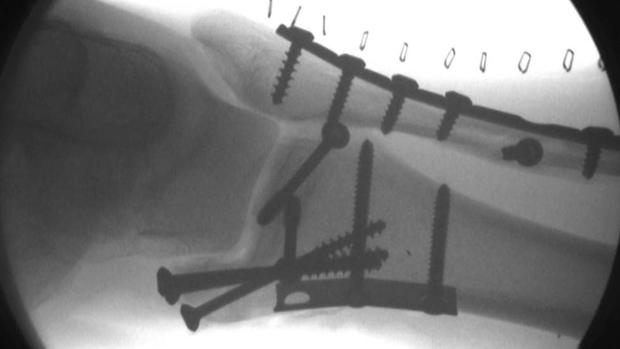Tooth lodged in boy's ear, docs blame tooth fairy
A mischievous tooth fairy may be on the loose, British doctors are warning.
"We are concerned that the actions of the mythical character at the root of this report must be brought to the attention of the medical community, as it seems to represent the first signs of a worrying new trend in malpractice," wrote the pediatricians who worked at three London Hospitals. "Previous anecdotal evidence suggests the tooth fairy is benevolent, but this opinion may need revising in light of mounting reports of less child-friendly activity."
In a report published Dec. 13 in the British Medical Journal (BMJ), doctors detail the case of an 8-year-old boy who presented to a London allergy clinic with so-called "mucopurulent rhinorrhea,"a condition in which a child's nose runs with thick mucus.
A CT-scan revealed a "calcified foreign body" in the child's left ear canal (scan pictured above). But what could it be?
His family told doctors that three years earlier, the child woke up upset one night after placing a tooth under his pillow. The distressed child had said the tooth fairy put a tooth in his left ear, but his parents thought it was only a bad dream and put him back to bed. But the fears persisted and they sought out two doctors since the incident, but they couldn't find anything wrong, the researchers said. Years later when the child presented with nasal problems, the pediatric allergist identified the wayward baby tooth and an ear nose and throat surgeon removed it. The authors wrote that the boy decided to keep the tooth rather than risk attempting another run-in with the tooth fairy.
"He kindly gave his consent for us to disseminate this information to save other children from going through this ordeal," they wrote.
Besides the boy's case, the researchers also warned of two cases of trauma caused by teeth lodged in the esophagus and one case of an adult who decided to place his child's tooth in his nipple piercing so it could be "near to his heart," only to develop an abscess.
BMJ is known to incorporate humor in its annual Christmas issue, which last year included a study that determined the speed of the"Grim Reaper." That study found seniors who were slowest walkers were more likely to die, leading researchers to conclude Death can't walk faster than 3 miles per hour.
